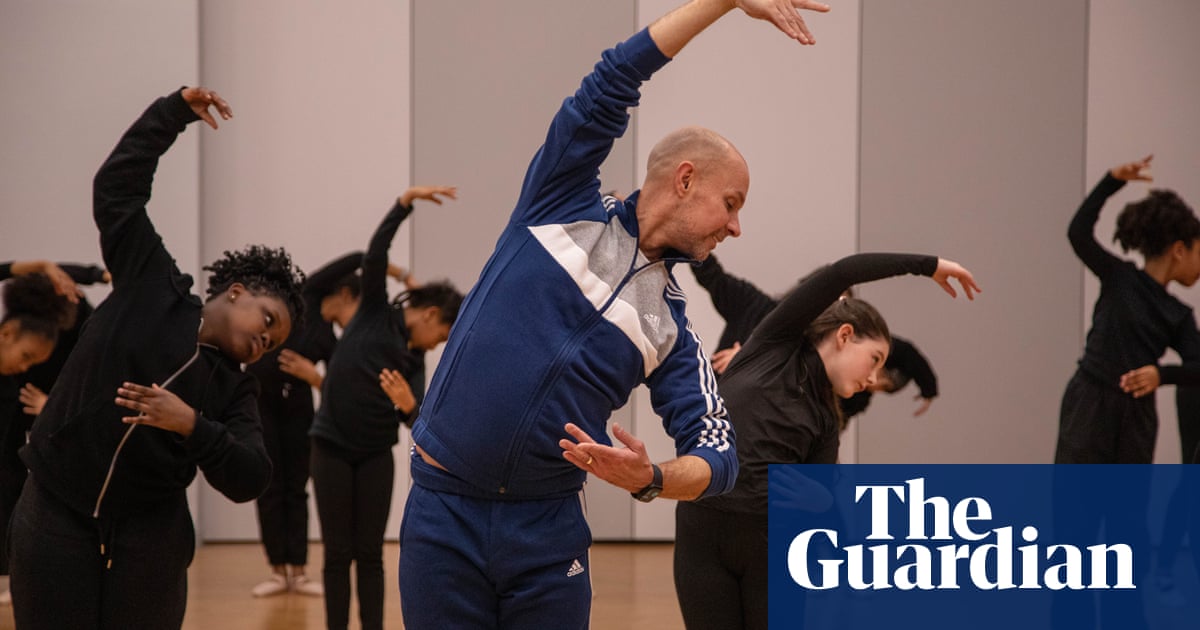
It is commonly thought of as one of the most elite forms of dance, using a dizzying mass of French vocabulary, and originally having been developed to be performed in the courts of European kings and queens.
But access to ballet training need not be only for children whose parents can afford it, according to the former Royal Ballet principal dancer, Martin Howland, who is giving a year’s worth of free lessons to primary school pupils in one of the poorest areas of Leeds.
More than 20 children in years 5 and 6 at Little London community primary school have been defying stereotypes and learning the discipline of ballet for the first time, while being provided with free equipment, such as ballet shoes, which they may not otherwise be able to afford.
The children, from a range of backgrounds but all growing up in a deprived area of north Leeds, have been lining up in their school hall twice a week since September to practise their pliés and chassés. The benefits have been palpable.
Josh Mayfield, PE lead at the school, said they were “so grateful” to Howland and the team for giving the opportunity to children who otherwise would not have it.
He said: “It’s wonderful for the pupils to be able to learn ballet in an environment that they’re comfortable in. It’s really important that they learn new skills outside of the curriculum and the scheme has already helped them come on leaps and bounds, not only in ballet but also in their general development. Having Martin’s experience and expertise on hand is a fantastic opportunity and it’s great to see the children improving with each lesson.”
The project was started by Howland, who trained at the Royal Ballet, in partnership with Kay Reardon, a former professional dancer who trained at Laine Theatre Arts, and Tim Jarrett, a sports scientist, strength and conditioning lecturer at the University of Leeds.
It is the second programme run by the trio’s nonprofit organisation, Project Resurgence, which aims to revolutionise ballet by making it more accessible and inclusive, as well as challenging its reputation of being an elitist art form.
Howland said the organisation was founded with what he described as “one clear mission: to revolutionise ballet training”.
“Our vision is a world where ballet is no longer seen as an exclusive art form, but instead as an inclusive discipline that nurtures healthier, happier, and better-educated young people,” he said.
The project follows a similar scheme last year, in which two promising 15-year-old dancers who would not otherwise have the means were given intensive ballet training. One had never danced before, while the other had never learned the discipline of classical ballet. At the end of the year-long project, both students received formal offers from leading professional dance colleges.
But Howland, who got a place at the Royal Ballet school aged 11, said the point was not only to spot and nurture future stars of the stage.
“We view ballet as a gateway to personal transformation – developing not just dance skills, but also building life skills such as resilience, confidence, and communication,” he said. “We’re focused on empowering pupils for bright futures in arts and beyond, building upon their key strengths of creativity, artistry, discipline and strength.
“Project Resurgence is all about breaking down barriers – whether these are financial barriers or harmful stereotypes that prevent children from experiencing ballet – and making ballet diverse, accessible, and inclusive for every individual.”
Leaps and bounds: ex principal dancer uses ballet to transform young lives in Leeds - The Guardian
Read More
Tidak ada komentar:
Posting Komentar